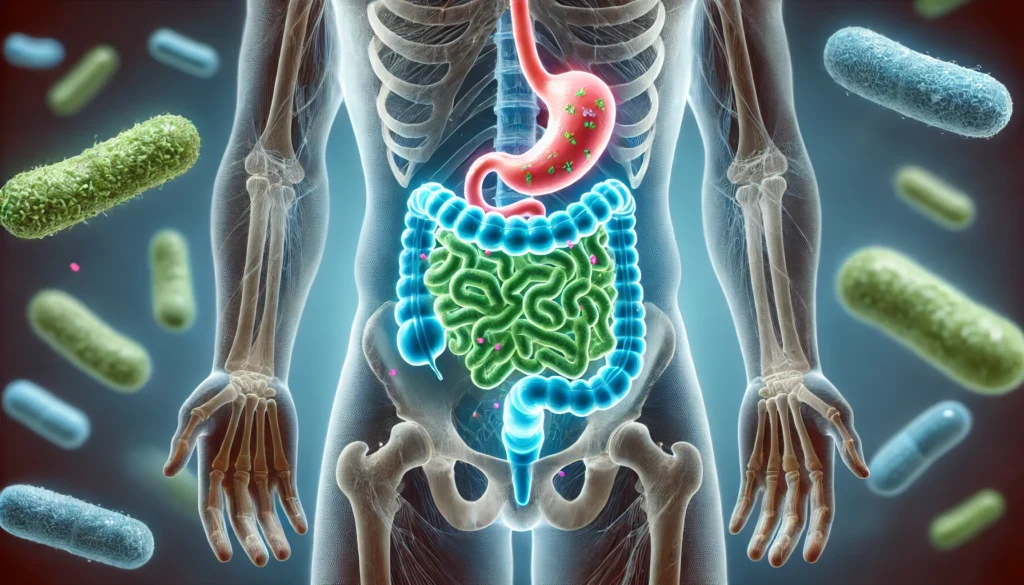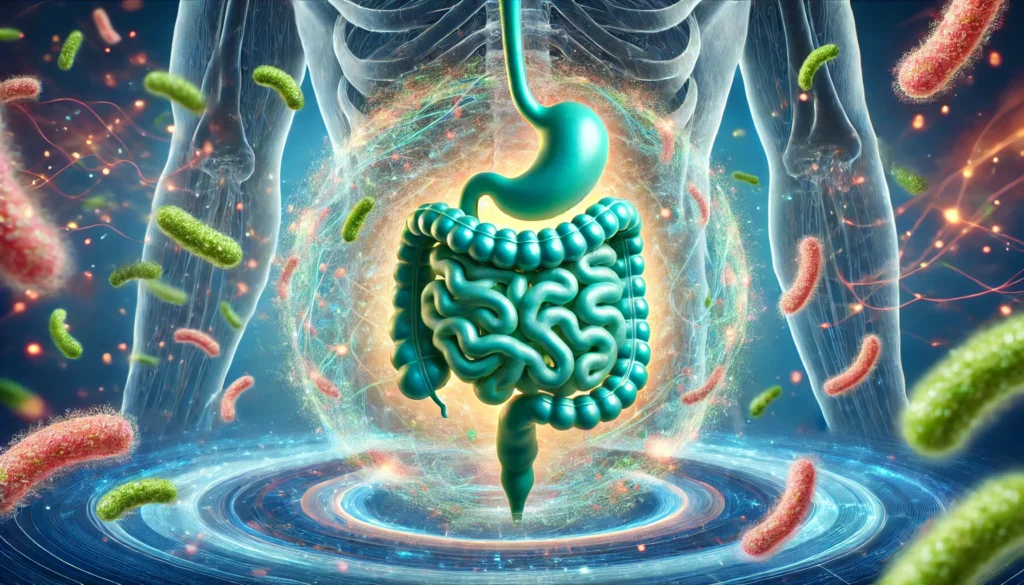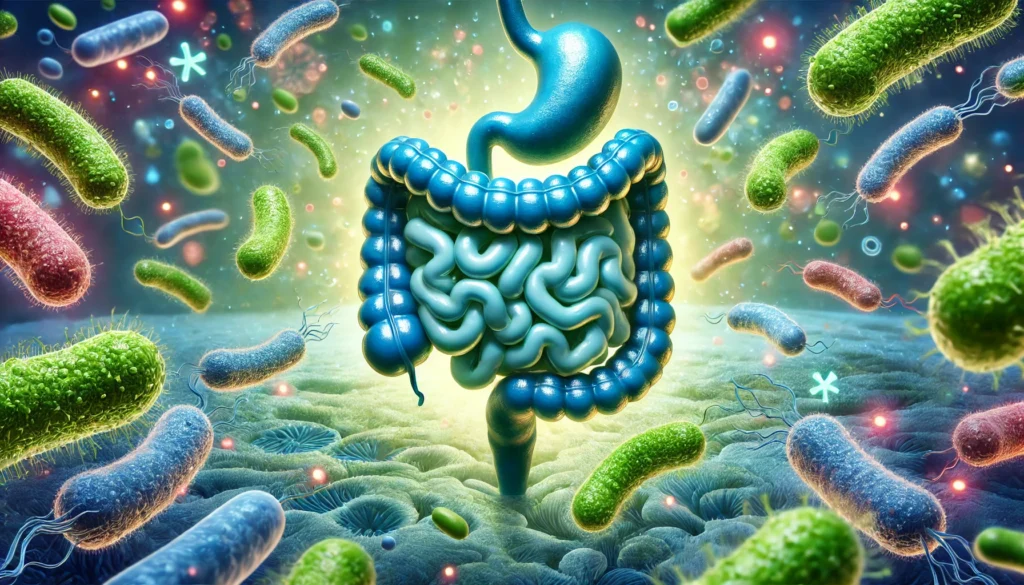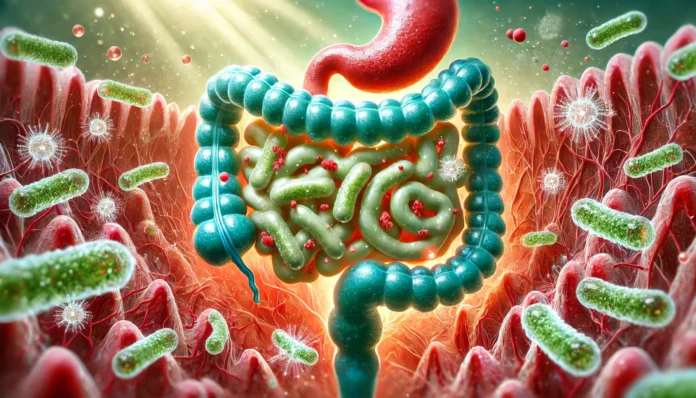Understanding Diarrhea: Causes and Impact on Health
Diarrhea is a common digestive issue characterized by loose, watery stools occurring more frequently than usual. It can range from a mild, short-term inconvenience to a severe, chronic condition requiring medical intervention. The causes of diarrhea vary widely, including bacterial and viral infections, food intolerances, medication side effects, and underlying gastrointestinal disorders such as irritable bowel syndrome (IBS) or Crohn’s disease. While most cases of diarrhea resolve on their own within a few days, prolonged episodes can lead to dehydration, malnutrition, and significant disruption to daily life.
You may also like: How to Improve Gut Health Naturally: Science-Backed Tips for a Stronger Microbiome
The impact of diarrhea on health extends beyond physical discomfort. Persistent diarrhea can result in the loss of essential nutrients and electrolytes, leading to fatigue, weakness, and impaired immune function. In vulnerable populations, such as young children and older adults, dehydration caused by diarrhea can be life-threatening. Given these concerns, finding effective treatments to manage and alleviate diarrhea is crucial. This is where probiotics have gained increasing attention as a potential remedy.
What Are Probiotics and How Do They Work?
Probiotics are live microorganisms, primarily beneficial bacteria and yeasts, that confer health benefits when consumed in adequate amounts. These beneficial microbes are naturally found in the human gut, where they play a crucial role in maintaining digestive health and immune function. Probiotics help balance the gut microbiota, a diverse ecosystem of microorganisms that influence digestion, metabolism, and overall well-being.
The mechanism by which probiotics exert their effects involves several key processes. First, they compete with harmful bacteria for space and nutrients, reducing the likelihood of pathogenic infections. Second, probiotics produce substances such as lactic acid and bacteriocins that inhibit the growth of harmful microbes. Third, they enhance the gut’s barrier function, preventing toxins and pathogens from entering the bloodstream. Additionally, probiotics modulate immune responses, promoting anti-inflammatory effects that contribute to gut health.
Given their potential to restore microbial balance, probiotics have been explored as a treatment for various gastrointestinal conditions, including diarrhea. But do probiotics help with diarrhea, and if so, what does the scientific evidence say?
Probiotics for Diarrhea: Examining the Scientific Evidence
Numerous clinical studies have investigated the effectiveness of probiotics for diarrhea, with promising results. Different strains of probiotics have been studied for their ability to reduce the duration and severity of diarrhea caused by infections, antibiotics, and chronic digestive conditions. Among the most extensively researched probiotic strains are Lactobacillus rhamnosus GG, Saccharomyces boulardii, Bifidobacterium bifidum, and Lactobacillus acidophilus.
Infectious Diarrhea
One of the most common causes of diarrhea is infections caused by bacteria, viruses, or parasites. Rotavirus and norovirus are leading causes of viral diarrhea, particularly in children. Studies have shown that probiotics, particularly Lactobacillus rhamnosus GG and Saccharomyces boulardii, can significantly reduce the duration and severity of infectious diarrhea in both children and adults. A meta-analysis published in The Cochrane Database of Systematic Reviews found that probiotics shorten diarrhea duration by approximately one day, highlighting their role in accelerating recovery.
Antibiotic-Associated Diarrhea (AAD)
Antibiotics are essential for treating bacterial infections, but they can disrupt the gut microbiota, leading to diarrhea. Antibiotic-associated diarrhea (AAD) occurs when beneficial gut bacteria are depleted, allowing harmful bacteria such as Clostridium difficile to proliferate. Research suggests that taking probiotics alongside antibiotics can help prevent AAD. Saccharomyces boulardii and Lactobacillus rhamnosus GG have been particularly effective in reducing the incidence of AAD, as evidenced by multiple randomized controlled trials.
Traveler’s Diarrhea
Traveler’s diarrhea is a common condition affecting individuals who visit regions with poor sanitation. It is typically caused by ingesting contaminated food or water, leading to infections with Escherichia coli, Salmonella, or Giardia lamblia. Probiotics such as Lactobacillus acidophilus and Bifidobacterium bifidum have shown potential in preventing traveler’s diarrhea by enhancing gut resistance to pathogens. While not foolproof, probiotic supplementation can serve as a preventive measure for travelers at high risk.
The Best Probiotic Enzyme to Fight Diarrhea
When considering the best probiotic enzyme to fight diarrhea, it is important to recognize that different probiotic strains possess varying enzymatic capabilities that aid digestion and gut health. Probiotic strains such as Bacillus coagulans, Bifidobacterium lactis, and Lactobacillus plantarum are known for their enzymatic activity that helps break down lactose, fiber, and other food components that may contribute to digestive discomfort.
For individuals with lactose intolerance, Lactobacillus acidophilus produces lactase, an enzyme that helps digest lactose and may reduce diarrhea caused by dairy consumption. Additionally, Saccharomyces boulardii has been shown to produce proteases that neutralize bacterial toxins, making it particularly effective in combatting antibiotic-associated and infectious diarrhea.

Does Probiotics Help with Diarrhea in Chronic Conditions?
Beyond acute diarrhea, probiotics have been explored as a therapeutic option for chronic digestive conditions such as irritable bowel syndrome (IBS) and inflammatory bowel disease (IBD). IBS-related diarrhea (IBS-D) is a common subtype of IBS characterized by frequent, urgent bowel movements and abdominal discomfort. Studies suggest that probiotic strains such as Bifidobacterium infantis and Lactobacillus plantarum can help alleviate IBS-D symptoms by reducing gut inflammation and improving stool consistency.
Similarly, individuals with Crohn’s disease and ulcerative colitis, both forms of IBD, often experience recurrent episodes of diarrhea due to inflammation and immune dysregulation. While probiotics alone may not be a cure for these conditions, they have demonstrated potential in supporting gut health, reducing flare-ups, and improving quality of life.
Will Probiotics Help with Diarrhea? Practical Considerations
For individuals considering probiotics as a remedy for diarrhea, several factors should be taken into account. First, selecting the right probiotic strain is essential, as different strains offer specific benefits. Second, probiotic effectiveness depends on dosage and duration; most studies recommend a minimum of 10 billion CFUs (colony-forming units) per day for noticeable effects. Third, probiotics should be taken consistently for optimal results, particularly when managing chronic digestive issues.
It is also important to choose high-quality probiotic supplements with verified potency and stability. Refrigerated probiotics and those with enteric coatings tend to maintain viability better than standard formulations. Additionally, incorporating probiotic-rich foods such as yogurt, kefir, sauerkraut, and kimchi into the diet can complement supplementation efforts.

Frequently Asked Questions (FAQ) on Probiotics and Diarrhea
1. Can probiotics help with diarrhea in children, and are they safe?
Yes, probiotics can help with diarrhea in children, particularly when caused by viral infections such as rotavirus or antibiotic use. Clinical studies have shown that certain probiotic strains, including Lactobacillus rhamnosus GG and Saccharomyces boulardii, can reduce the duration and severity of diarrhea in pediatric cases. These probiotics work by restoring the balance of beneficial gut bacteria, which is often disrupted during illness or antibiotic therapy. Probiotics for diarrhea in children are generally safe when used in recommended doses; however, it is crucial to choose high-quality supplements specifically designed for pediatric use. Parents should always consult a healthcare provider before starting probiotic supplementation, especially if the child has a weakened immune system or underlying medical conditions.
2. How quickly do probiotics work for diarrhea?
The effectiveness of probiotics for diarrhea varies depending on the cause, probiotic strain, and individual response. In cases of acute infectious diarrhea, research suggests that probiotics can shorten symptoms by approximately one day. When used to prevent antibiotic-associated diarrhea, probiotics may take several days to establish their protective effect. Chronic conditions like irritable bowel syndrome (IBS) or inflammatory bowel disease (IBD) may require consistent probiotic use for several weeks before noticeable improvements occur. The key to maximizing probiotic benefits is consistency in supplementation, as maintaining a stable population of beneficial bacteria in the gut enhances their protective and restorative functions.
3. Will probiotics help with diarrhea caused by stress or anxiety?
Stress and anxiety can significantly impact gut health, often leading to diarrhea due to the gut-brain axis’s intricate connection. Research indicates that specific probiotic strains, such as Bifidobacterium longum and Lactobacillus helveticus, can help regulate the gut-brain interaction, reducing stress-related gastrointestinal symptoms. These probiotics support the production of neurotransmitters like serotonin, which plays a role in both mood regulation and gut motility. While probiotics can be an effective complementary approach, addressing stress through lifestyle modifications such as mindfulness, exercise, and dietary changes can further improve digestive health. If stress-related diarrhea is persistent, a healthcare provider may recommend a combination of probiotic therapy and psychological interventions.
4. What is the best probiotic enzyme to fight diarrhea, and how does it work?
The best probiotic enzyme to fight diarrhea depends on the underlying cause of digestive distress. Some probiotic strains produce enzymes that aid in digestion and support gut health. For example, Lactobacillus acidophilus produces lactase, an enzyme that helps break down lactose, making it beneficial for individuals with lactose intolerance-induced diarrhea. Additionally, Saccharomyces boulardii secretes proteases that neutralize bacterial toxins, making it effective for antibiotic-associated and infectious diarrhea. Multi-strain probiotics that combine different enzyme-producing bacteria may offer broader digestive support, ensuring a more balanced gut microbiome and improved resistance to diarrhea triggers.
5. Does probiotics help with diarrhea caused by food poisoning?
Food poisoning is typically caused by bacterial toxins from contaminated food, leading to severe diarrhea, nausea, and abdominal cramps. Probiotics can help speed recovery by restoring gut microbial balance and reducing inflammation. Saccharomyces boulardii and Lactobacillus rhamnosus GG have demonstrated effectiveness in neutralizing toxins and preventing the adhesion of harmful bacteria to the intestinal lining. However, probiotics should not replace immediate medical attention in cases of severe dehydration or prolonged symptoms. Staying hydrated and replenishing lost electrolytes is essential, and in some cases, medical intervention may be necessary to prevent complications.
6. Can probiotics help with diarrhea in individuals with lactose intolerance?
Yes, probiotics can be beneficial for individuals with lactose intolerance who experience diarrhea after consuming dairy products. Certain probiotic strains, such as Lactobacillus acidophilus and Bifidobacterium bifidum, help break down lactose more efficiently by producing the enzyme lactase. This enzymatic activity reduces the likelihood of fermentation-induced gas, bloating, and diarrhea following dairy consumption. Regular intake of these probiotics may help improve tolerance to lactose-containing foods over time. However, individuals with severe lactose intolerance should continue to monitor their diet and consider lactose-free alternatives for better digestive comfort.
7. Do probiotics help with diarrhea related to irritable bowel syndrome (IBS)?
Yes, probiotics can help manage diarrhea-predominant irritable bowel syndrome (IBS-D) by regulating gut motility and reducing inflammation. Strains such as Bifidobacterium infantis and Lactobacillus plantarum have been studied for their role in alleviating IBS symptoms, including frequent bowel movements and abdominal discomfort. These probiotics help modulate immune responses in the gut, reducing hypersensitivity and excessive fluid secretion that contribute to diarrhea. While probiotics for diarrhea in IBS patients can be effective, they work best when combined with dietary adjustments, such as increasing fiber intake and avoiding trigger foods. Long-term probiotic use may offer sustained benefits in symptom control.
8. Can probiotics prevent diarrhea in travelers?
Traveler’s diarrhea is a common concern for individuals visiting regions with different bacterial environments or lower sanitation standards. Probiotic supplementation before and during travel has been shown to reduce the risk of traveler’s diarrhea, particularly when using strains like Lactobacillus acidophilus and Bifidobacterium bifidum. These probiotics help strengthen gut defenses against harmful bacteria commonly found in contaminated food and water. While probiotics can provide protection, travelers should also take preventive measures, such as drinking bottled water, avoiding raw foods, and practicing proper hand hygiene. Starting probiotic supplementation at least one week before travel enhances their effectiveness in fortifying gut health.
9. How do probiotics compare to traditional anti-diarrheal medications?
Probiotics and traditional anti-diarrheal medications work through different mechanisms. While medications like loperamide (Imodium) slow down bowel movements to reduce diarrhea frequency, probiotics address the underlying microbial imbalance contributing to digestive issues. Unlike anti-diarrheal drugs, probiotics offer long-term gut health benefits by replenishing beneficial bacteria and supporting immune function. However, in cases of severe or prolonged diarrhea, a combination of probiotics and medication may be necessary for symptom relief and prevention of complications. Consulting a healthcare provider can help determine the best approach based on the cause and severity of diarrhea.
10. Will probiotics help with diarrhea in older adults?
Older adults are more susceptible to diarrhea due to age-related changes in gut microbiota, medication use, and underlying health conditions. Probiotics can be particularly beneficial for maintaining gut health and preventing diarrhea in this population. Strains such as Bifidobacterium lactis and Lactobacillus rhamnosus GG have been shown to support digestive balance and reduce inflammation in aging individuals. Additionally, probiotics can help counteract the negative effects of antibiotics and promote better nutrient absorption. Regular probiotic use, combined with a fiber-rich diet and proper hydration, can significantly improve digestive health in older adults and reduce the risk of recurrent diarrhea episodes.

Conclusion: The Role of Probiotics in Managing Diarrhea
Scientific evidence supports the use of probiotics for diarrhea, particularly in cases of infectious, antibiotic-associated, and chronic digestive conditions. While probiotics are not a guaranteed cure for all forms of diarrhea, they offer a natural and effective way to restore gut balance, enhance immunity, and promote digestive health. Choosing the best probiotic enzyme to fight diarrhea requires an understanding of strain-specific benefits and appropriate supplementation strategies. For those experiencing recurrent or severe diarrhea, consulting a healthcare provider can ensure the most effective and individualized approach to gut health management.
gut health support, digestive balance supplements, natural diarrhea remedies, probiotics for gut flora, microbiome health solutions, best digestive probiotics, intestinal health boosters, probiotic-rich foods, digestive enzyme supplements, healthy gut bacteria, immune-boosting probiotics, beneficial gut microbes, gut-brain connection, fermented foods benefits, prebiotics and probiotics, healthy digestion tips, managing gut inflammation, probiotic yogurt benefits, natural gut healing, dietary probiotics sources
Further Reading:
The Potential Impact of Probiotics on Human Health: An Update on Their Health-Promoting Properties
Probiotics for diarrhea: Do they help?
Can Probiotics Help Treat Diarrhea?
Disclaimer
The information contained in this article is provided for general informational purposes only and is not intended to serve as medical, legal, or professional advice. While Health11News strives to present accurate, up-to-date, and reliable content, no warranty or guarantee, expressed or implied, is made regarding the completeness, accuracy, or adequacy of the information provided. Readers are strongly advised to seek the guidance of a qualified healthcare provider or other relevant professionals before acting on any information contained in this article. Health11News, its authors, editors, and contributors expressly disclaim any liability for any damages, losses, or consequences arising directly or indirectly from the use, interpretation, or reliance on any information presented herein. The views and opinions expressed in this article are those of the author(s) and do not necessarily reflect the official policies or positions of Health11News.


